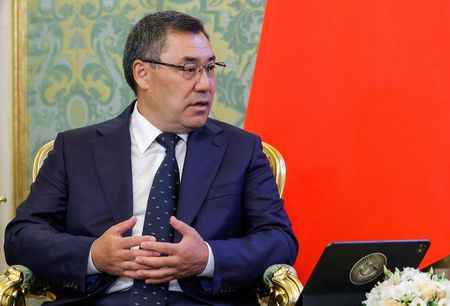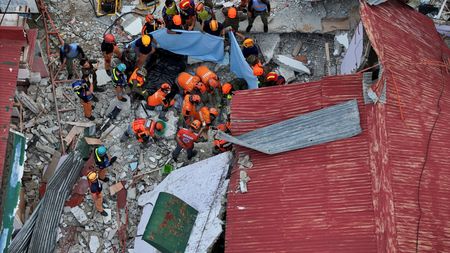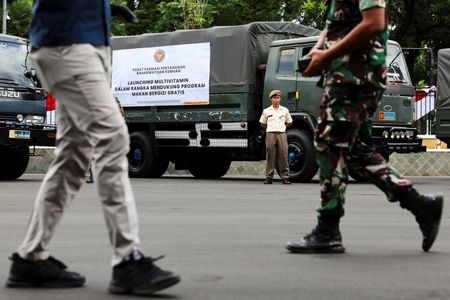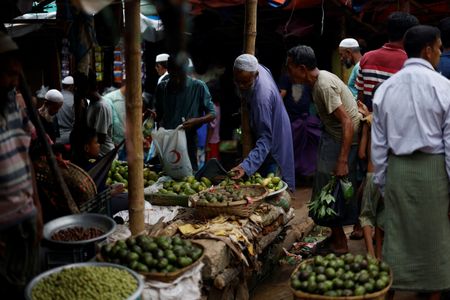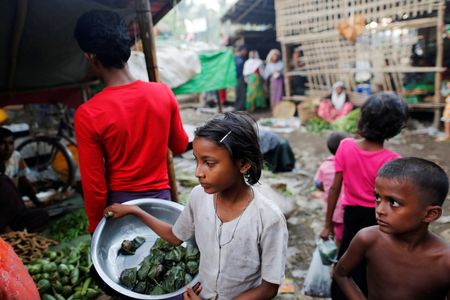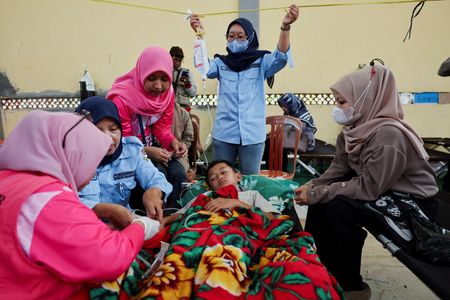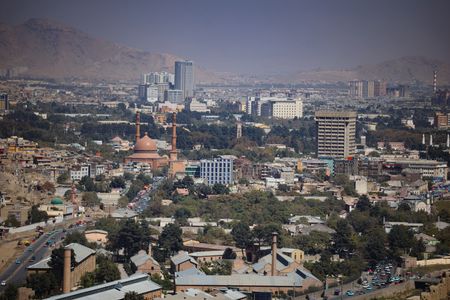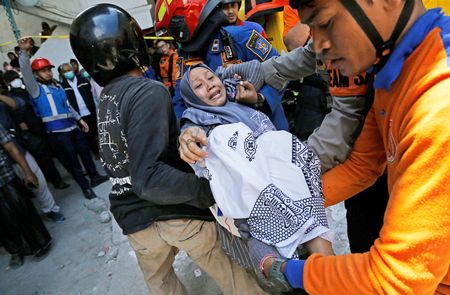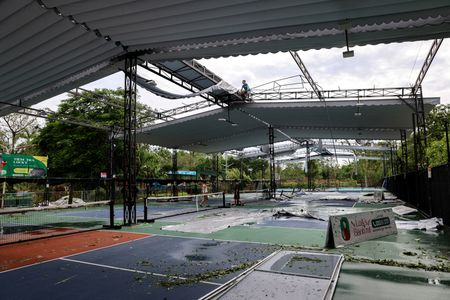BISHKEK (Reuters) -Kyrgyzstan’s populist President Sadyr Japarov has ordered the drafting of a bill to reinstate the death penalty for the most serious crimes against children and women.
His move followed the killing of a 17-year-old girl, which sparked public outrage in the mountainous former Soviet republic of around seven million people. Her body was found on September 27, and a suspect has been detained.
Kyrgyzstan was ranked the most dangerous country for women in Central Asia in the previous two years, according to the global Women, Peace and Security Index.
According to the presidential administration, the proposed legislation would reinstate the death penalty for rape of children and for rape followed by murder of women.
Kyrgyzstan has observed a moratorium on the death penalty since 2007, meaning its return would require major constitutional and legal changes.
In a post on Facebook, Japarov’s press secretary said that the president was backing the bill in response to the murder of the girl, who has been named only as Aisuluu. He said that Japarov believed that “crimes against women and children must not go unpunished”.
ELECTION DUE
The country holds a parliamentary election on November 30, with parties loyal to Japarov aiming to stay dominant.
Since coming to power on a wave of protests in 2020, Japarov has tightened his grip on Kyrgyzstan, traditionally Central Asia’s most democratic country, where three presidents have been ousted by mass demonstrations since independence in 1991.
According to Kyrgyz independent media outlet Kloop, 20–30 gender-targeted femicides are recorded annually, with overall 1,109 women killed between 2010 and 2023.
According to rights group Amnesty International, 113 nations had abolished the death penalty by the end of 2024 with 1,518 executions recorded worldwide that year, mostly in China, Iran, Saudi Arabia, Iraq and Yemen.
(Reporting by Aigerim Turgunbaeva; Writing by Felix Light; Editing by Andrew Cawthorne)

